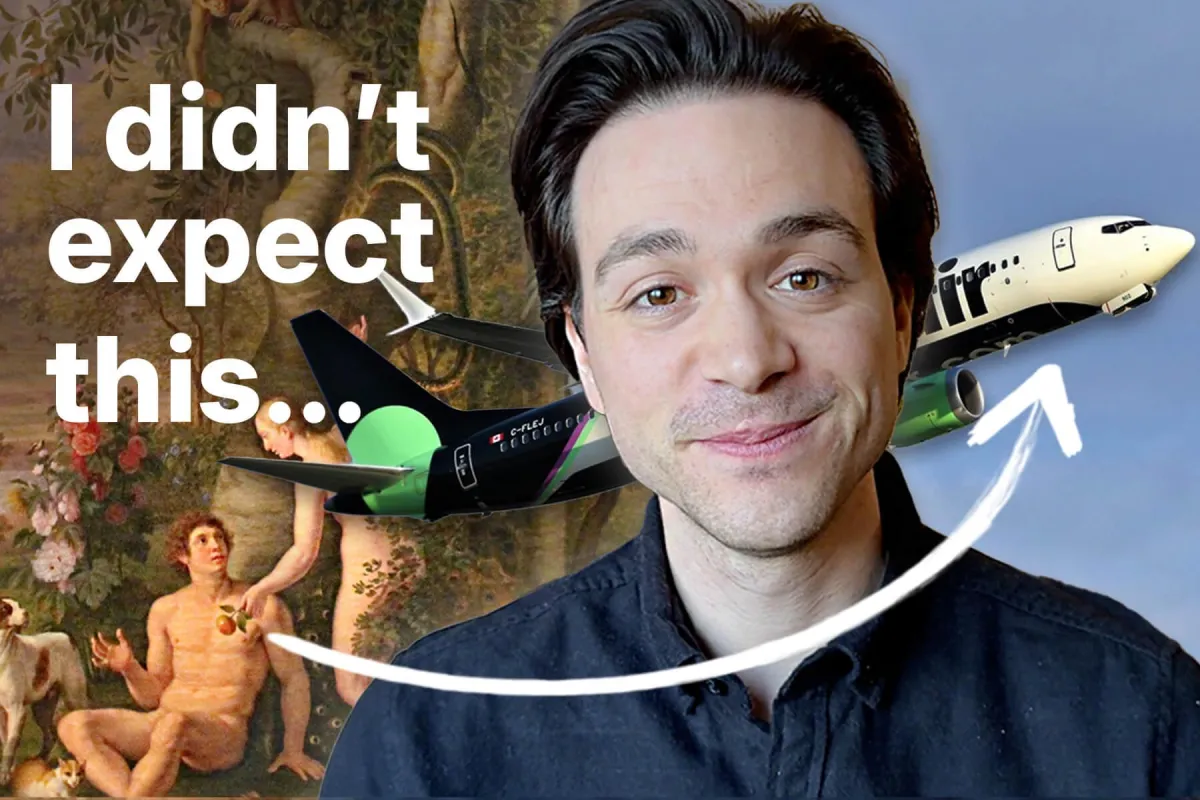
Genesis at 35,000 feet
This is starting to feel like a pattern...
On two different flights in the past few weeks I've reached for my Bible and read the opening chapters of Genesis with the passenger next to me.
During my flight home from the Advance Summit I sat next to Laura*, a law student who was keen to talk about everything from law to religion and artificial intelligence. In the course of our conversation, I took out my Bible and together we read through Genesis 1–3 and discussed what it means to be made in the image of God, where things have gone wrong in God's purposes for the world, and how the solution traces through the biblical story to Jesus. By the time we landed, Laura thanked me for the conversation, mentioning that she learned a lot and was interested in getting a copy of the Bible to continue reading.
Just last week, on my flight home from another conference, I sat next to Navya*, a 48-year-old lawyer from Toronto. Less than a minute after I sat down, Navya mentioned her father’s recent passing and we quickly entered into deep conversation as she described her experience of divorce, parenting, and spirituality. When I mentioned Genesis and took out my Bible, she was intrigued and asked if she could read it. Together we walked through Genesis 1–5, discussing how the biblical narrative makes sense of our lives and offers an identity, purpose, and security beyond our circumstances. It was such an honour to listen to Navya's story and to point her to Jesus as the source of the peace she is looking for.
These conversations remind me that although many people spiritually curious, they're often starting further back than we expect. Many contemporary approaches to evangelism have had a tendency to jump to John 3:16 while trying to answer the question "how can I get saved?" But in Navya's case, reading Genesis at 35,000 feet was the first time she opened a Bible.
The saving Kingship of Jesus is the centre of the gospel message. But it's also the climax of a story––and like any climax, it only makes sense in light of its beginning. What’s more, beneath all the cultural debates of our time are deeper questions: Who are we? Why are we here? What makes for a good life? Scripture speaks to these questions by telling a story.
Genesis 1 and 2 show us what we're made for. God created human beings in his image to share in his life and reflect his love. Genesis 3 explains why life feels so broken. Human beings are deceived into turning away from God and became trapped under the power of Sin and Death. By taking on our humanity, dying, and rising again, Jesus shows us where the story is headed. In Christ, our humanity is not only restored, it reaches its intended destiny: united to God's life and empowered to share his love with the world.
This story speaks both to Laura's questions about artificial intelligence and Navya's search for peace in the midst of loss. Making this clear means sharing the gospel of Jesus in light of the story of our creation, identity, and purpose.
Would you join me in praying that God continues to draw Laura and Navya into this story and, ultimately, to himself?
*Names changed for privacy.